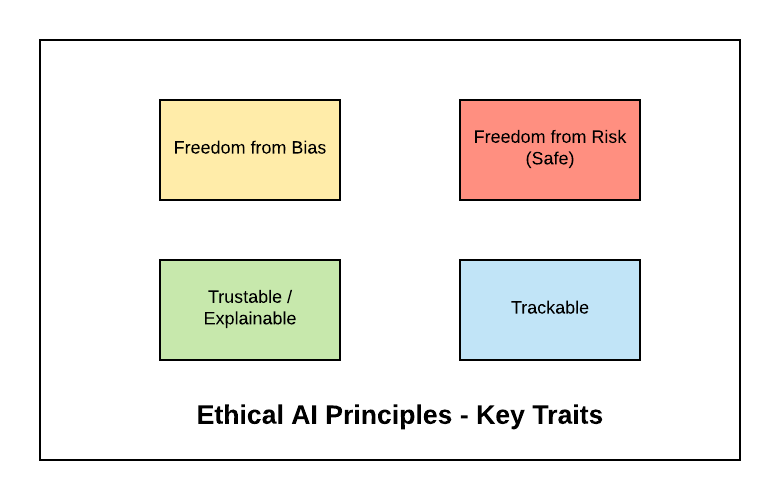
Exploring Ethical Dimensions Of Artificial Intelligence
In today’s rapidly advancing technological landscape, the rise of Artificial Intelligence (AI) has brought unprecedented opportunities and challenges. As AI becomes more integrated into our lives, questions of ethics have emerged as a critical concern. This article delves into the realm of AI ethics, uncovering the intricate elements that shape the responsible development and deployment of AI technologies.
Understanding Artificial Intelligence Ethics
AI Ethics encompasses a collection of ethical principles and guidelines that steer the entire lifecycle of AI systems and AI tools, from conception and deployment to their real-world effects. This ethical framework involves a comprehensive analysis of the possible advantages and drawbacks linked to AI technology and AI tools. Its primary objective is to ensure that AI’s evolution, AI tools’ development, and their application remain harmonized with fundamental human values, while also safeguarding the overall welfare of society. In essence, AI Ethics serves as a compass that navigates the intricate path of AI development and the creation of AI tools, with a constant focus on aligning technological progress, AI tools’ capabilities, with the greater good and minimizing potential harm.

-
Fairness And Bias:
Fairness entails ensuring that AI systems do not favor or discriminate against any specific group or individual. It involves diligent examination of training data to identify and rectify biases that may inadvertently result in unfair outcomes. Ethical AI strives to treat all users equitably and make decisions without prejudice.
-
Transparency And Explainability:
Transparency emphasizes the need for AI systems to be understandable and interpretable. Users have the right to comprehend how AI-driven decisions are made, particularly when those decisions impact their lives. Ethical AI ensures that the inner workings of algorithms are clear, enabling users to trust and rely on AI systems.
-
Privacy And Security:
Privacy centers on safeguarding sensitive user data and respecting their personal boundaries. Ethical AI places a strong emphasis on data protection, limiting access to confidential information, and preventing unauthorized use. It prioritizes measures that prevent data breaches and unauthorized access to ensure user trust.
-
Accountability And Responsibility:
Accountability refers to attributing responsibility for the outcomes of AI systems. Ethical AI holds developers, organizations, and stakeholders accountable for the actions and consequences of AI technologies. Should errors or unintended results occur, a clear framework is in place to address and rectify them.
-
Trust And Reliability:
Trust is essential in the interaction between humans and AI systems. Ethical AI focuses on building reliable technologies that consistently provide accurate information and dependable performance. Trustworthy AI systems enhance user confidence and encourage their use in various applications.
-
Human Control:
Human control emphasizes that AI systems should operate under human supervision. Ethical AI recognizes the importance of human intervention, allowing individuals to modify or override AI decisions, especially in critical situations. This principle maintains a balance between automation and human influence.
-
Social And Environmental Impact:
Ethical AI extends its considerations beyond individual interactions to encompass broader societal and environmental effects. It takes into account the potential consequences of AI deployment on communities, economies, and the environment. AI should contribute positively to society and minimize adverse impacts.
In essence, the key components of artificial intelligence Ethics collectively underscore the importance of creating AI systems that are unbiased, understandable, respectful of privacy, accountable for their actions, trustworthy, human-centered, and socially and environmentally responsible. These components form a comprehensive framework that guides the development and deployment of AI technologies in ways that align with human values and contribute positively to the greater good.
Final Thoughts: Navigating Ethics In The Age Of AI
As artificial intelligence technologies continue to shape our world, ethical considerations become increasingly vital. Navigating the complex terrain of AI ethics requires collaboration among technologists, policymakers, ethicists, and the broader public. The journey towards ethical AI involves striking a delicate balance between innovation and responsibility. By prioritizing fairness, transparency, privacy, accountability, and the well-being of individuals and society, we can pave the way for a future where AI benefits us all without compromising our values. As we stand at the crossroads of AI advancement, embracing ethical considerations will undoubtedly shape the course of technology’s impact on our lives.



